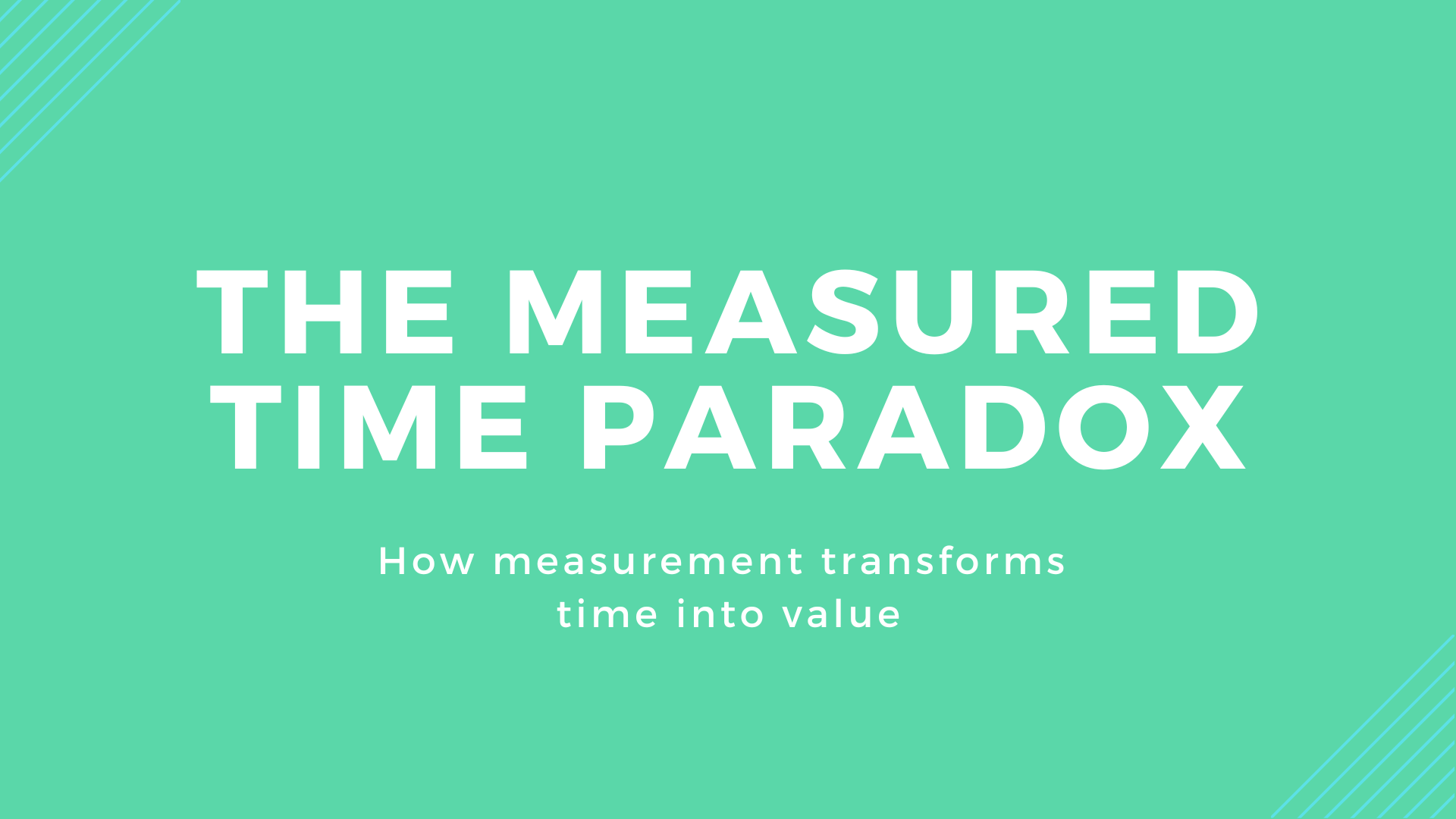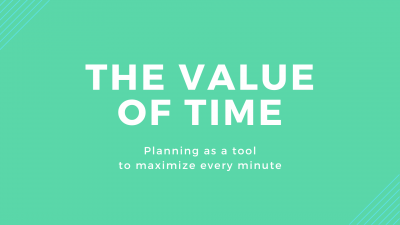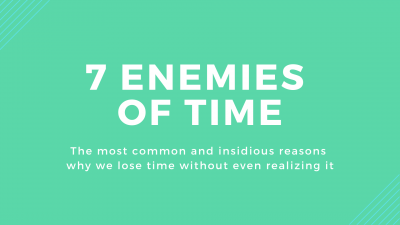The discovery that has revolutionized the way thousands of professionals and companies work
"Time, the more you measure it, the smaller it becomes.
The smaller it becomes, the less time it takes to reach your goals.
The less time it takes to reach your goals, the higher the value of your time.
Time is uncontrollable.
Your time, however, the more you measure it, the more compressed (condensed) and valuable it becomes."
- Taskomat
The Hidden Equation of Success
Over the past few years, working with hundreds of companies and professionals through Taskomat, we've discovered a fascinating paradox in the world of productivity: the more we measure time, the more it condenses and gains value.
Our most successful clients aren't those who work more, but those who have learned to measure better. It's not magic—it's behavioral science applied to everyday life.
Time: Infinite vs Finite
Time, in absolute terms, is an uncontrollable force. It flows equally for everyone: 24 hours a day, 7 days a week, 365 days a year. It's democratic in its relentlessness.
But there's a fundamental distinction to make: there's time (the universal one) and your time (the personal, measured, conscious one).
The Magic of Measurement
When you start measuring your time, something extraordinary happens:
Time condenses. As if you suddenly discover that what you thought lasted hours actually only requires minutes. Measurement brings awareness, awareness brings efficiency.
Goals get closer. Not because time accelerates, but because you eliminate everything superfluous. Every minute becomes intentional.
Value multiplies. One measured hour is worth ten hours lived unconsciously.
The Virtuous Spiral of Condensed Time
Imagine this cycle:
- Measure → You become aware of how much time you actually spend
- Condense → You eliminate waste, distractions, low-value activities
- Accelerate → You reach goals in times that previously seemed impossible
- Valorize → Your time acquires exponentially greater value
Practical Example: The Designer's Transformation
Real case study of Marco, freelance designer and creative entrepreneur:
Before systematic measurement:
- Startup logo project: "It takes at least 2-3 days"
- Actual time spent: 6 hours of effective creative work, diluted over 72 calendar hours
- Typical process: half hour of work, coffee break, social media check, another half hour, phone call, color indecision, long lunch...
- Result: constant stress, deadlines always at risk, under-quoted projects, clients dissatisfied with timelines
After 30 days of automatic and conscious measurement:
- Same type of logo project: 4 hours concentrated in a single morning
- Work quality: significantly better (fewer indecisions, faster decisions, laser focus)
- Optimized process: brief → research 45 min → concept 90 min → execution 90 min → revisions 15 min
- Result: can handle 3x more clients simultaneously, revenue increased by 150%
The revolutionary turning point? Marco discovered that "creative work" didn't need entire days of "inspiration" at all, but intense, measured, and totally immersive hours. Creativity, paradoxically, explodes under well-calibrated time pressure.
The most powerful insight: He now quotes projects based on measured real time, not perceived time. He transformed his perception from "creative work is unpredictable" to "creativity is a muscle that trains with temporal precision."
And if it worked so well for Marco working alone, just imagine what can happen in a work team where inefficiencies multiply!
Start now measuring your time!
Signup for freeWhy It Works: The Psychology of Time Pressure
Parkinson's Law teaches us that "work expands to fill the time available for its completion." But the opposite is equally true: when you reduce available time, work compresses to fit.
Measurement creates beneficial pressure that:
- Eliminates hesitations and overthinking
- Drastically reduces distractions
- Increases concentration and flow state
- Stimulates creativity under controlled pressure
- Reveals the real hidden "time eaters"
Practical Tools for Measuring and Condensing
1. Intelligent Time Boxing
It's not just about assigning time blocks to activities. Professionals who get the best results use systems that automatically track these blocks, identify productivity patterns, and suggest optimizations.
2. Automatic vs Manual Measurement
While manual timing can be a good start, real transformation happens when measurement becomes invisible and automatic. Data collected continuously reveals patterns that the human brain could never identify.
3. Time Pattern Analysis
Measuring isn't enough—you need to analyze. When you discover you're more productive from 10:00 to 11:30 AM or that certain activities consistently require less time than expected, you can redesign your day to maximize value.
4. Continuous Feedback Loop
The real power of measurement emerges when it becomes a feedback loop: measure, analyze, optimize, measure again. It's a cycle that feeds itself and continuously improves.
The Exponential Value of Measured Time
The data we've collected from thousands of users shows surprising results. When time becomes measured and condensed, you're not just optimizing productivity. You're creating compound value:
- Economic value: Our clients report an average 40% increase in project completion capacity
- Personal value: You recover 2-3 hours daily for what really matters
- Relational value: You're more present in important relationships (end of "I don't have time" stress)
- Emotional value: Drastic reduction in stress and guilt related to procrastination
A particular case: A creative agency with 12 employees implemented automatic time measurement systems. Result after 6 months: same revenue with 25% fewer hours worked, allowing the team to take every Friday off.
The Silent Revolution
When we talk about "time management," the real revolution is in intelligent time measurement. You don't manage what you don't measure. You don't value what you don't know. You don't optimize what you don't understand.
The most innovative companies have understood this. They've stopped telling employees "work more" and started saying "measure better." The result? Happier teams, more satisfied clients, better results.
Time will continue to flow equally for everyone. But your time—the measured, condensed, conscious one—that can become your secret weapon for a life and business of greater value.
The First Step Toward Transformation
The good news? You don't have to revolutionize your life to start. Our most successful clients all started with one simple step: measure just one activity for one week.
It could be time spent on emails, meetings, a specific project. The important thing is to start. Because the simple act of measuring will forever change your relationship with time.
What you'll discover will surprise you:
- Activities you thought lasted hours often require only minutes
- "Time thieves" you never noticed
- Times of day when you're naturally more productive
- How much time you really waste in transitions between activities
And when you have this data, you can start the real revolution: transforming time from a resource you suffer to a tool you control.
Want to explore how to implement intelligent time measurement in your reality? Transformation always starts with the first step. And the first step is always to measure.
Time is the only resource you can't produce, buy, or recover. But you can measure it, condense it, and multiply its value. It's time to start.



